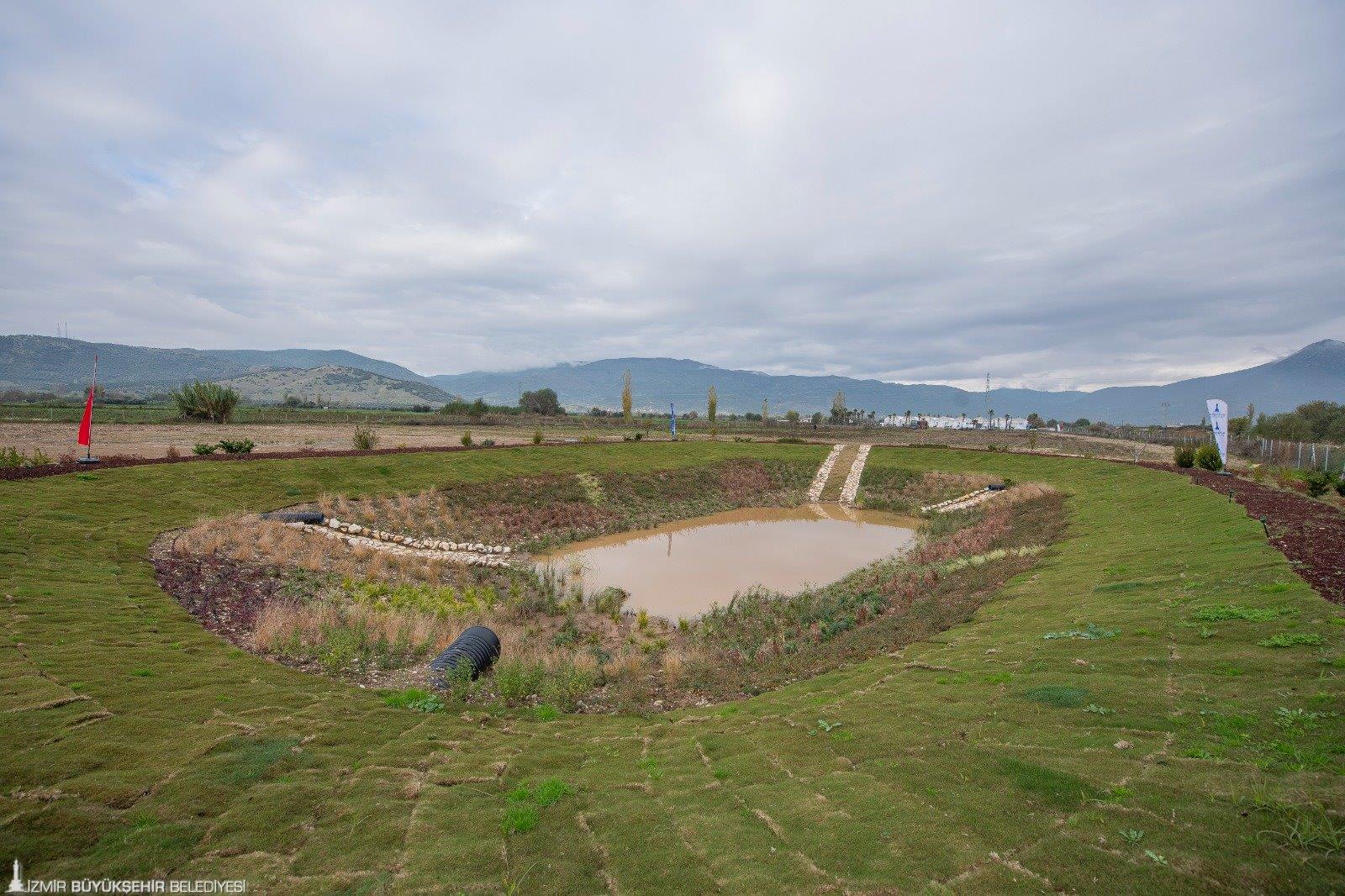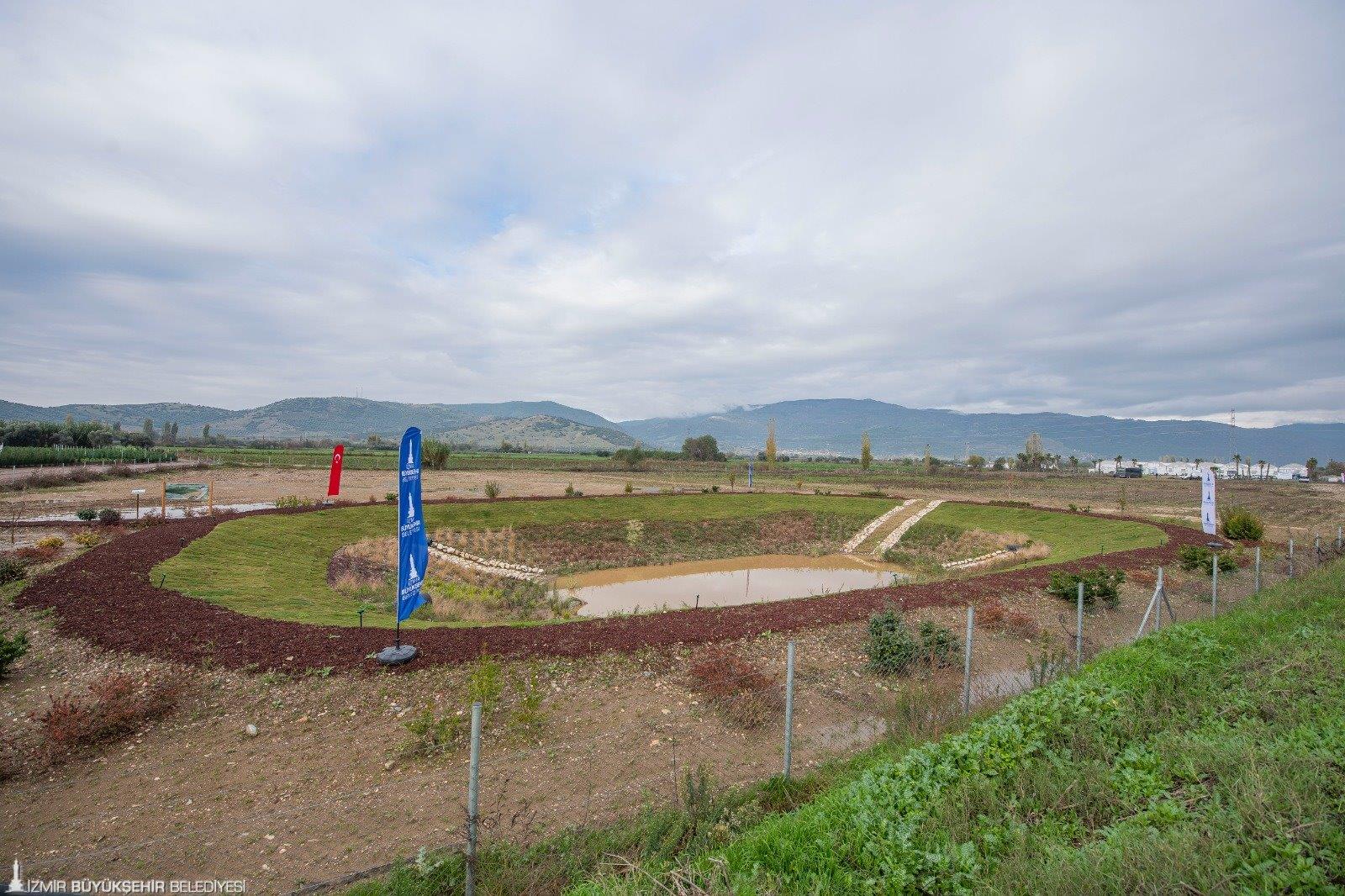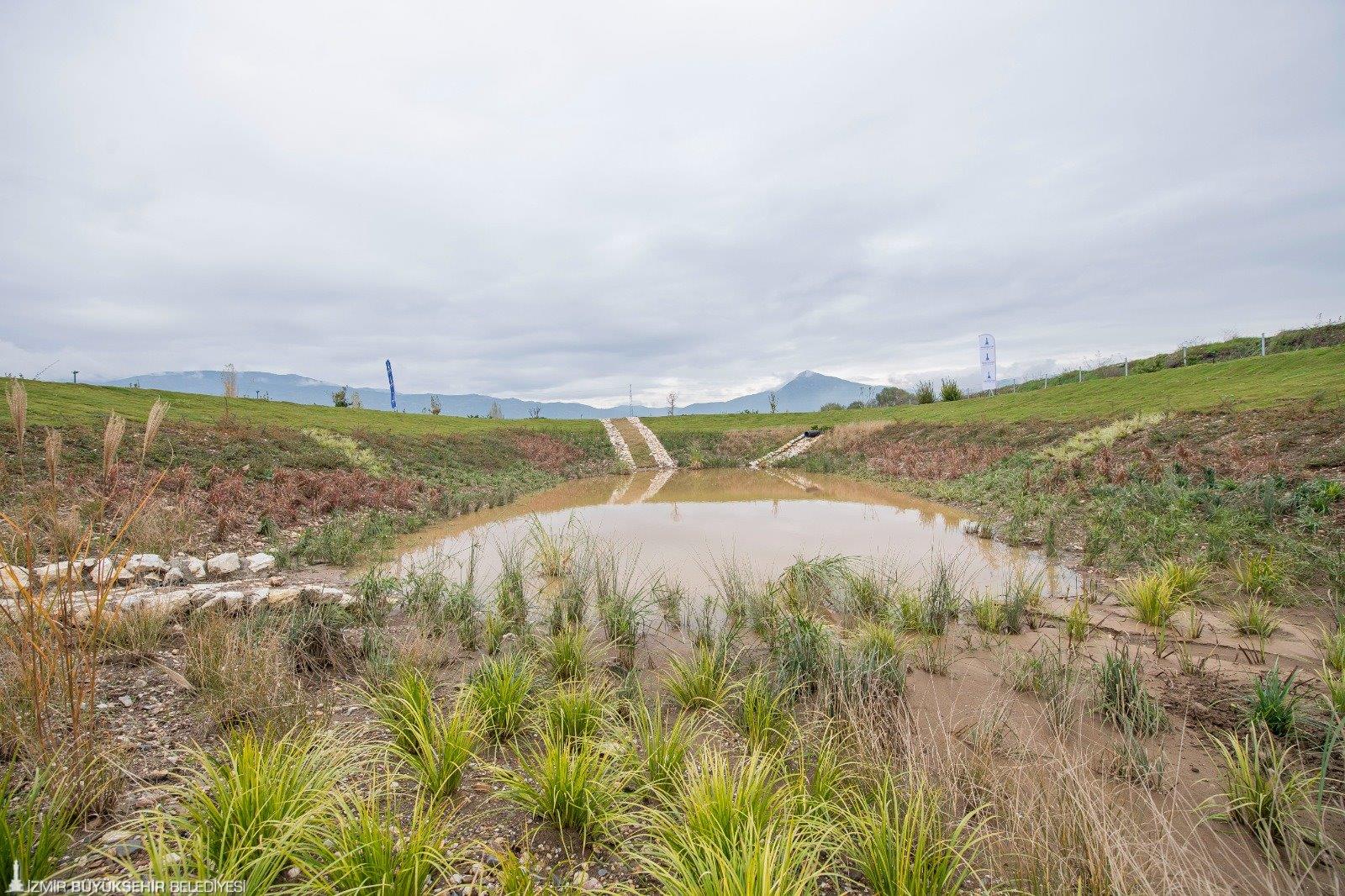News Detail
Turkey's first biological infiltration pond is in İzmir
As part of the Sponge City project implemented by İzmir Metropolitan Municipality to combat drought, Turkey's first biological infiltration pond was created in İzmir.
As part of İzmir Metropolitan Municipality's efforts to combat drought, Turkey's first biological infiltration pond was created in İzmir’s Ödemiş district through the Sponge City İzmir project. The project will channel rainwater falling on the roof areas of Bademli Cooperative's greenhouses and the surrounding agricultural lands, as well as all return water from agricultural irrigation in the summer months, into the infiltration pond through drainage channels and pipelines. This will enable the underground storage of water equivalent to approximately 24 Olympic swimming pools per year. The water stored underground will meet the needs of 196,000 m² of agricultural land and all the water needs of the Bademli Cooperative.
"Designed to alleviate the wounds of drought"
İzmir Metropolitan Municipality Mayor Tunç Soyer, who began his speech by stating that they are witnessing a historic moment as they raise the flag of the resilient city İzmir in Ödemiş today, said that the Bademli Biological Infiltration Pond will be a source of fertility for the Küçük Menderes Basin. Mayor Soyer explained that they designed this project to alleviate the biggest problem of the basin, drought, saying, "With our pond and recharge wells, we will provide lifeblood to the farmers in the Küçük Menderes Basin who are struggling with drought. We will replenish our underground waters and increase fertility. Because we know that where there is water, there is fertility, there is labor, there is bread. Our Bademli Biological Infiltration Pond will bring that water back to the Küçük Menderes Basin."
The rainwater harvesting efforts in the Küçük Menderes Plain, which form the rural component of the Sponge City project, continue at full speed. The project involves constructing recharge wells, infiltration cisterns, and infiltration ponds to replenish groundwater in the Küçük Menderes Basin. For this purpose, Turkey's first biological infiltration pond, capable of storing 60,000 cubic meters of water (equivalent to 24 Olympic swimming pools), was constructed in Ödemiş. The pond is 2.5 meters deep and covers an area of 1,255 square meters. Aquifer tests determined that the design criteria include a percolation rate of 3 m³ per square meter per day over an infiltration area of 769 m², and it was constructed based on these hydraulic data. Water coming from agricultural areas into the pond is bio-filtered to remove harmful chemicals from agricultural pesticides before being fed into the aquifer system. In this respect, it is Turkey's first biological infiltration pond.




